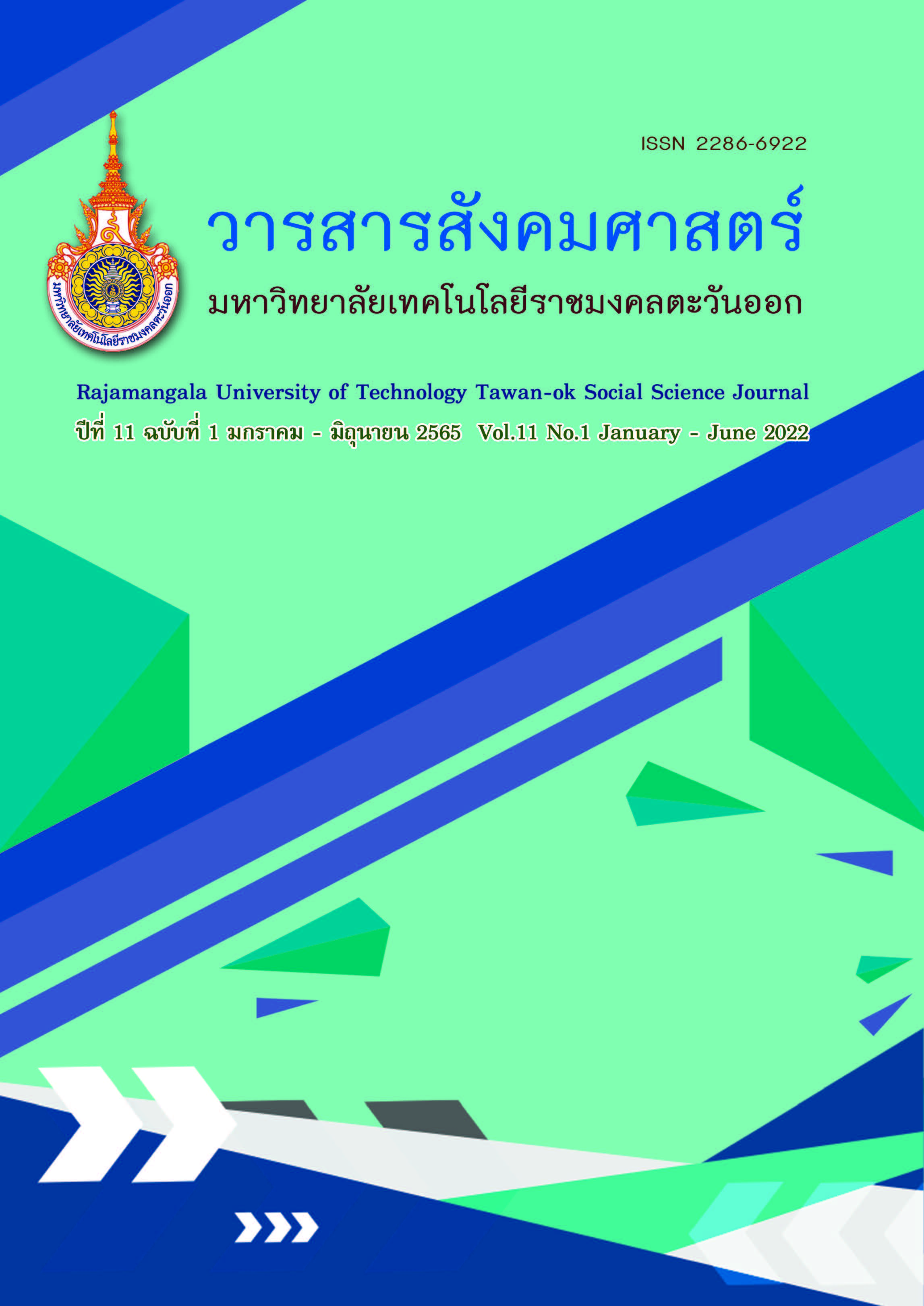The Study of Elderly Life Happiness
Main Article Content
Abstract
This research, the descriptive research, aims to: 1) Explore the elderly’s happiness and 2) Investigate factors affecting the happiness of elderly. The pilot study is carried out in 3 areas and uses multi-stage sampling. Stage 1 uses purposive sampling to select 3 areas; Muang, Ban Laem and Kao Yoi districts. Stage 2 uses systematic random sampling to select the elderly’s household in each
district. And Stage 3 selects every elderly people up to ethic criterion to get proportional to size. The selection yields sample size 60, 41 and 31 for Muang, Ban Laem and Kao Yoi districts. The questionnaire includes 2 parts, general data and 6point scale of Likert uses to measure happiness of elderly people. Since statistical test shows non-normality data, the researchers use non-parametric statistics including Chi-square test, Independent Mann-Whitney U test, and Independent Sample Kruskal-Wallis test. The statistical significance level for the hypothesis test is .05. The results show that: 1) Overall, the
elderly’s happiness level is an average of 3.67, which is categorized as moderate and 2) In terms of factors affecting the happiness level of the elderly in the community, It is found that the variables area, age, marital status, level of education, and revenue, affect the elderly’s happiness level significantly. The results from this research can be used as guideline for elderly care and find intergeneration perception patterns in community toward happiness of elderly life.
Article Details

This work is licensed under a Creative Commons Attribution-NonCommercial-NoDerivatives 4.0 International License.
References
กรมกิจการผู้สูงอายุ กระทรวงพัฒนาสังคมและความมั่นคงของมนุษย์. 2563. ยุทธศาสตร์กรมกิจกาผู้สูงอายุ พ.ศ. 2560-2565 ฉบับปรับปรุง ครั้งที่ 2 พ.ศ. 2563. พิมพ์ครั้งที่ 1. หจก. เทพเพ็ญวานิสย์: กรุงเทพฯ.
กรมสุขภาพจิต. 2563. ข่าวจากหนังสือพิมพ์ที่เกี่ยวข้องกับสุขภาพจิต 93 วันสู่สังคม “คนชรา” 5 จังหวัด?. [Online]. เข้าถึงจาก https://www.dmh.go.th/news-dmh/view.asp?id=30453 (สืบค้นวันที่ 20 กุมภาพันธ์ 2564)
กระทรวงพัฒนาสังคมและความมั่นคงของมนุษย์. 2547. พระราชบัญญัติผู้สูงอายุ พ.ศ. 2546. พิมพ์ครั้งที่ 2. เจ. เอส.: กรุงเทพฯ.
ณัฐกานต์ สำเนียงเสนาะ. 2556. ปัจจัยทำนายความสุขของผู้สูงอายุในชุมชน จังหวัดฉะเชิงเทรา. วิทยานิพนธ์ ปริญญามหาบัณฑิต. มหาวิทยาลัยบูรพา: ชลบุรี.
ธนายุส ธนธิติ และ กนิษฐา จำรูญสวัสดิ์. 2558. การพัฒนาพฤติกรรมการดูแลสุขภาพที่พึงประสงค์ของผู้สูงอายุใน ชมรมผู้สูงอายุตำบลบางเตย อำเภอสามพราน จังหวัดนครปฐม. วารสารพยาบาลสงขลานครินทร์. 35(3): 57-72.
พิมพิสุทธิ์ บัวแก้ว และ รติพร ถึงฝั่ง. 2559. การดูแลสุขภาพและภาวะสุขภาพของผู้สูงอายุไทย. วารสารสมาคม นักวิจัย. 21(2): 94-109.
ยุพา ทองสุข, ดวงใจ วัฒนสินธุ์ และ ภรภัทร เฮงอุดมทรัพย์. 2562. ปัจจัยที่มีอิทธิพลต่อความผาสุขทางใจของ ผู้สูงอายุ. วารสารสภาการพยาบาลจิตเวชและสุขภาพจิต, 33(1), 95-110.
สำนักงานจังหวัดเพชรบุรี. (ม.ป.ป.). แผนพัฒนาจังหวัดเพชรบุรี (พ.ศ. 2561 -2564). กลุ่มงานยุทธศาสตร์การพัฒนา จังหวัดเพชรบุรี.
สำนักงานพัฒนาสังคมและความมั่นคงของมนุษย์จังหวัดเพชรบุรี. 2563. รายงานสถานการทางสังคมจังหวัดเพชรบุรี ปี 2563. [Online] เข้าถึงจาก http://phetchaburi.m-society.go.th/wp- (สืบค้นวันที่ 20 กรกฎาคม 2564)
Argyle, M., & Martin, M.. 1991. The psychological causes of happiness. In F. Strack, M. Argyle & N. Schwarz (Eds.), Subjective Well-being an Interdisciplinary Perspective (pp. 77-100). Oxford: Pergamon Press: E-Book Universitätsbibliothek Würzburg. Retrieved from 91_bk_Strack_Argyle_ Schwarz_Well-being-with-cover-page-v2.pdf
Chueng, Y.N., & Chan, C. W. J.. 2009. Intergeneration perception toward happiness in elderly life. (APIAS Monograph Paper Series No.22) Retrieved from Lingnan University website: http:// commons.ln.edu.hk/apiasmp/22
Park, Hang-Silk., Kang, Hee-Gyoo., Kim, Myung-Chul., Lee, Jiyeong. & Paik, Jean-kyung. 2018. Development of the WISH (Well-Aging Indexing for Senior Health) Platform for Happiness. Journal of Open Innovation: Technology, Market, and Complexity. Retrieved from file:///C:/ Users/User/Downloads/JOItmC-04-00036-v2.pdf
Thailand Convention & Exhibition Bureau. 2019. ประชากรสูงวัยและแนวโน้มในอนาคต. [Online]. เข้าถึงจาก https://intelligence.businesseventsthailand.com/th/insight/aging-trends-01-th (สืบค้นวันที่ 2 ตุลาคม 2563)


